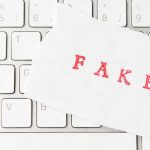
Deceptive omissions in advertising: how to avoid incurring them?
In this entry, our focus shifts to deceptive omissions in advertising, a common category of advertising offenses that often incur significant penalties.
In a recent blog post, we delved into the prevalence of illicit practices in advertising, with a particular focus on deceptive acts. These acts encompass any behavior containing false information or information that may mislead recipients, with the potential to alter their economic behavior.
What are deceptive omissions in advertising?
Article 7 of the Spanish Unfair Competition Law (LCD) addresses deceptive omissions in advertising, stating that the omission of relevant information in an advertising message can be considered deceptive if it somehow induces or could induce recipients into error.
Furthermore, advertising will also be considered deceptive by omission if, despite including all essential information, the way it is presented is suboptimal, such as offering it at an inappropriate time, lacking clarity, being unintelligible, or ambiguous.
Not disclosing the commercial purpose when not obvious from the context, known as covert advertising, is explicitly classified as deceptive under Article 26 of the LCD and it is currently a prevalent practice among influencers or content creators on social media.
Characteristics of deceptive omissions in advertising
Similar to deceptive acts, the impact of advertising on recipients is crucial in these offenses. Determining whether advertising induces or could induce consumers into error is therefore essential and involves considering various factors:
- Relevance of the omitted information: Relevant information is determined by applicable legislation, which often specifies necessary information. For other cases, a weighted analysis of circumstances is needed, considering the average consumer’s perspective.
- Consumer’s knowledge of the omitted information: Evaluating how well the average consumer knows the information.
- Factual context: Factors like location, time of year, or other circumstances can play a significant role in determining the deceptive nature of advertising.
- Limitations of the dissemination medium: Article 7.2 of the LCD highlights the importance of considering the limitations of the dissemination medium. While it may justify certain adaptations due to limited advertising space, it cannot excuse generic or ambiguous formulations.
How to avoid deceptive omissions in advertising?
- Comply with consumer and sector-specific legislation: In addition to meeting the information requirements outlined in consumer and user protection laws, various sector-specific legislation exists in advertising (e.g., financial, banking, healthcare, or food-related regulations). Consulting applicable laws for the product or services being advertised provides insight into mandatory information and inclusion conditions.
- Avoid citing dissemination medium limitations as an excuse: Unless strictly necessary, refrain from using the limitation of the dissemination medium as an excuse. Conduct a detailed study of its impact on the recipient beforehand.
- Seek expert advice in case of doubt: Letslaw has legal experts in digital and advertising law who can advise on campaigns from a legal perspective, guiding the development process to prevent issues or sanctions.
Feel free to contact our team of digital lawyers with any questions; we are eager to share our experience and knowledge. Reach out to us today!

Letslaw es una firma de abogados internacionales especializada en el derecho de los negocios.







